Implementing best practice in malaria information systems

Almost every Malawian resident lives in a region of high malaria transmission. Malaria is a leading cause of morbidity and mortality, particularly affecting children under five and pregnant women. In recent years, malaria has accounted for 36% of all in-patient cases. Children under five are especially vulnerable.
Background
Alinune N Kabaghe is a physician and public health researcher who works in a rural community in southern Malawi where malaria transmission is particularly high owing to the low altitude, year-long high temperatures and floods during the wet season. Dr Kabaghe was sponsored by JBI’s philanthropy program to participate in the Evidence Implementation Program in Adelaide during which healthcare professionals undertake a six-month evidence implementation project in their clinical setting under the guidance of JBI research fellows.
The quality of health information in primary health facilities is essential for effective treatment of patients. Dr Kabaghe's evidence implementation project aimed to improve the quality of malaria health information in primary health facilities in rural Malawi, where he witnessed firsthand the consequences of inefficient malaria data systems. Healthcare workers at local primary healthcare facilities relied on a series of paper-based registers to track cases, treatment and medication distribution. Stored in cramped spaces and maintained manually, the registers were prone to inaccuracies. "This process was unreliable", says Dr Kabaghe.

Children presenting to the facilities were first entered into an out-patient register, followed by a malaria diagnostic test register (where indicated) and then into an antimalarial drug register. The data were manually aggregated (by under/over five years of age) for a monthly summary report for the district health office. Based on the reports, medicine and other treatment agents were supplied to the facility.
"Children were being treated according to their age, not their weight, and so often were not given the correct dosage. Also, there was the potential for errors in aggregation and for missing clients in the registers. Under-reporting led to undersupply of medical products, drug stock-outs, and non-adherence to recommended antimalarial treatment. Also, the reports were not summarised by location and therefore could not be used to identify areas where malaria cases present from for decision-making."
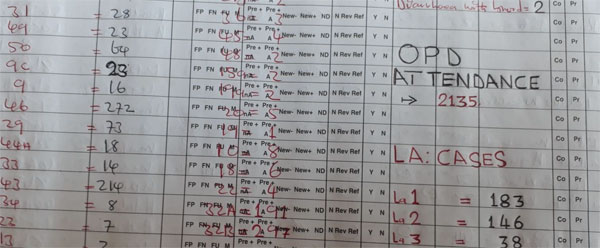
The systemic gaps in the primary healthcare facilities reflect a global issue: health systems in low-resource settings struggle to collect and use high-quality data to guide timely responses to malaria. This absence of reliable, real-time data hampers malaria control efforts and results in misallocation of life-saving resources.
Identifying and implementing the evidence
Dr Kabaghe's evidence implementation project aimed to improve malaria surveillance and case management across four local primary healthcare facilities by implementing and evaluating an evidence-based, locally adapted electronic malaria information system.
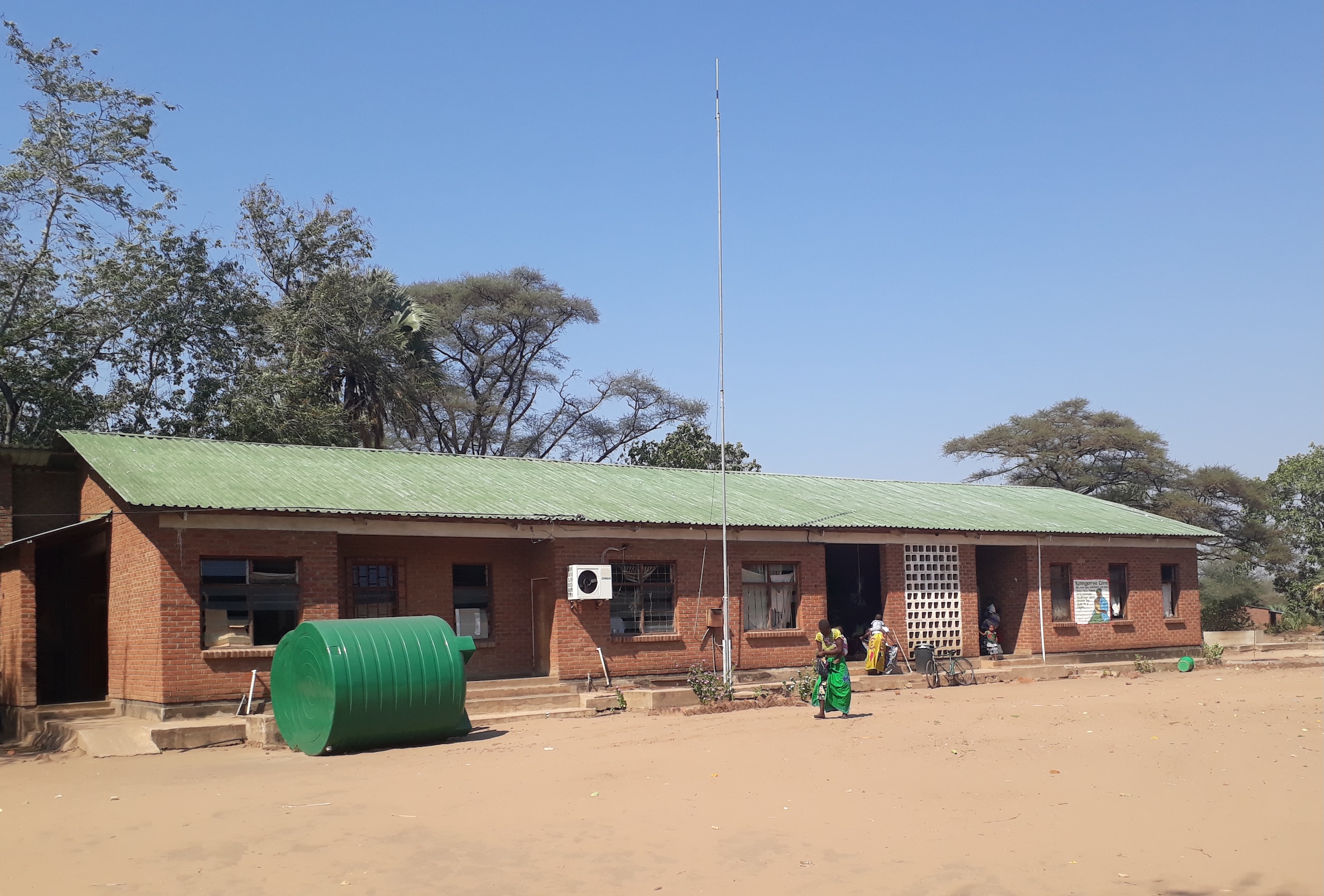
Best practice for a malaria information system was identified and defined according to the best available research evidence. Researchers at JBI had developed an Evidence Summary to support the project, ‘Electronic monitoring of the quality of malaria treatment in children in low- and middle-income countries’, that listed recommendations based on the World Health Organization’s guidance for the design and maintenance of a malaria surveillance system. An electronic malaria information system (eMIS), which captures information about the malaria case management of each individual patient at the point of care, was identified as complying with best practice. The eMIS was evaluated for appropriateness and feasibility in the primary health facilities and was piloted following demonstrated feasibility and a willingness by staff to use electronic data collection. The district became a pioneer in the use of eMIS in Malawi.
“In Malawi there is a real need to invest in setting up an evidence-based malaria information system. Our project has demonstrated the feasibility and acceptability of implementing eMIS.”
Outcomes of the pilot, based on audit criteria developed by JBI researchers, were:
- Electronic data collection for malaria information systems improved in three out of four primary healthcare facilities in rural Malawi.
- Electronic malaria information systems were used for quick access to both individual and aggregated data, and included the malaria treatment administered in three out of four primary healthcare facilities at follow-up audit cycle, compared to the baseline audit.
- Data consistency increased from a baseline of 50% to 100% in three of the four healthcare facilities.
- Data completeness also increased from 85% at baseline to 100% at follow-up.
Key to the project’s success was communicating and engaging stakeholders: "Stakeholder engagement at all project phases is important, and buy-in from senior management was key to resourcing the project; for example, the supply of electronic tablets and chargers". 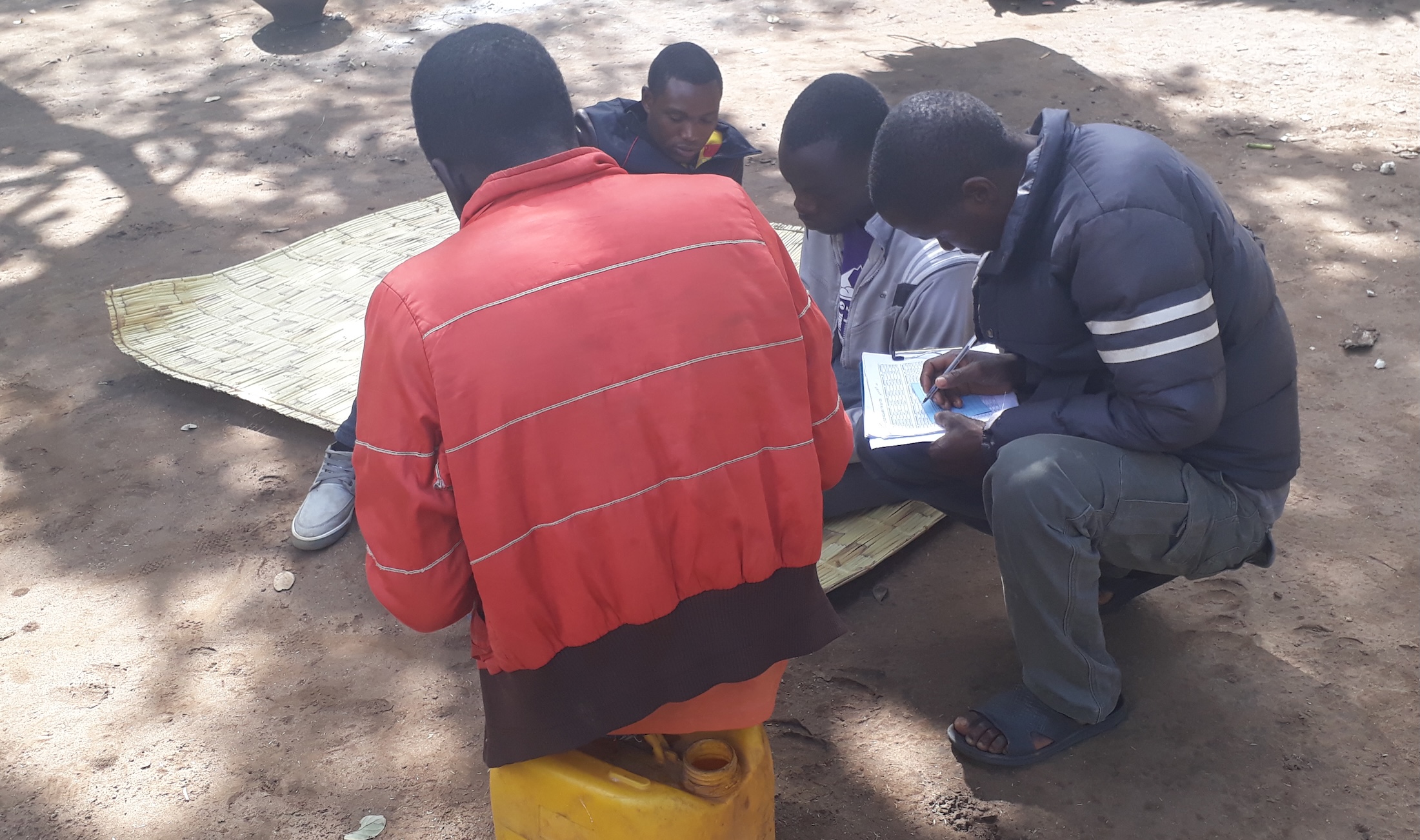
Dr Kabaghe’s evidence implementation project on improving malaria health information systems in rural Malawi aligns with, and strengthens, the broader ecosystem of integrated malaria control initiatives across the country, such as the Majete Integrated Malaria Project (MIMP). While MIMP focuses on community-based interventions such as vector control, health education, and improved access to treatment, Dr Kabaghe's work addresses the often-overlooked backbone of effective care: timely, accurate, and complete health information. His introduction of eMIS enables real-time tracking of patient care and resource needs, directly supporting the goals of integrated programs like MIMP by ensuring that frontline health facilities are equipped to respond efficiently and equitably. Together, these initiatives demonstrate how evidence-based clinical improvements and community-level interventions can work hand in hand to reduce malaria burden and improve health outcomes in high-transmission regions.
From pilot to practice: scaling up evidence-based data systems
Building on the success of the pilot, Dr Kabaghe and his colleagues aimed to embed the use of eMIS more broadly across rural Malawi. Informed by his experience during the JBI Evidence Implementation Program and using JBI’s audit and feedback methodology, Dr Kabaghe led a best practice project that aimed to further improve data quality and malaria surveillance through mobile-based technology. As with the pilot, the project team used JBI PACES software and the Getting Research into Practice (GRiP) framework to audit existing practices, identify barriers and enablers, and implement evidence-based solutions. These tools were instrumental in ensuring continued alignment with globally endorsed standards for malaria data surveillance, and in engaging frontline health workers in the change process.
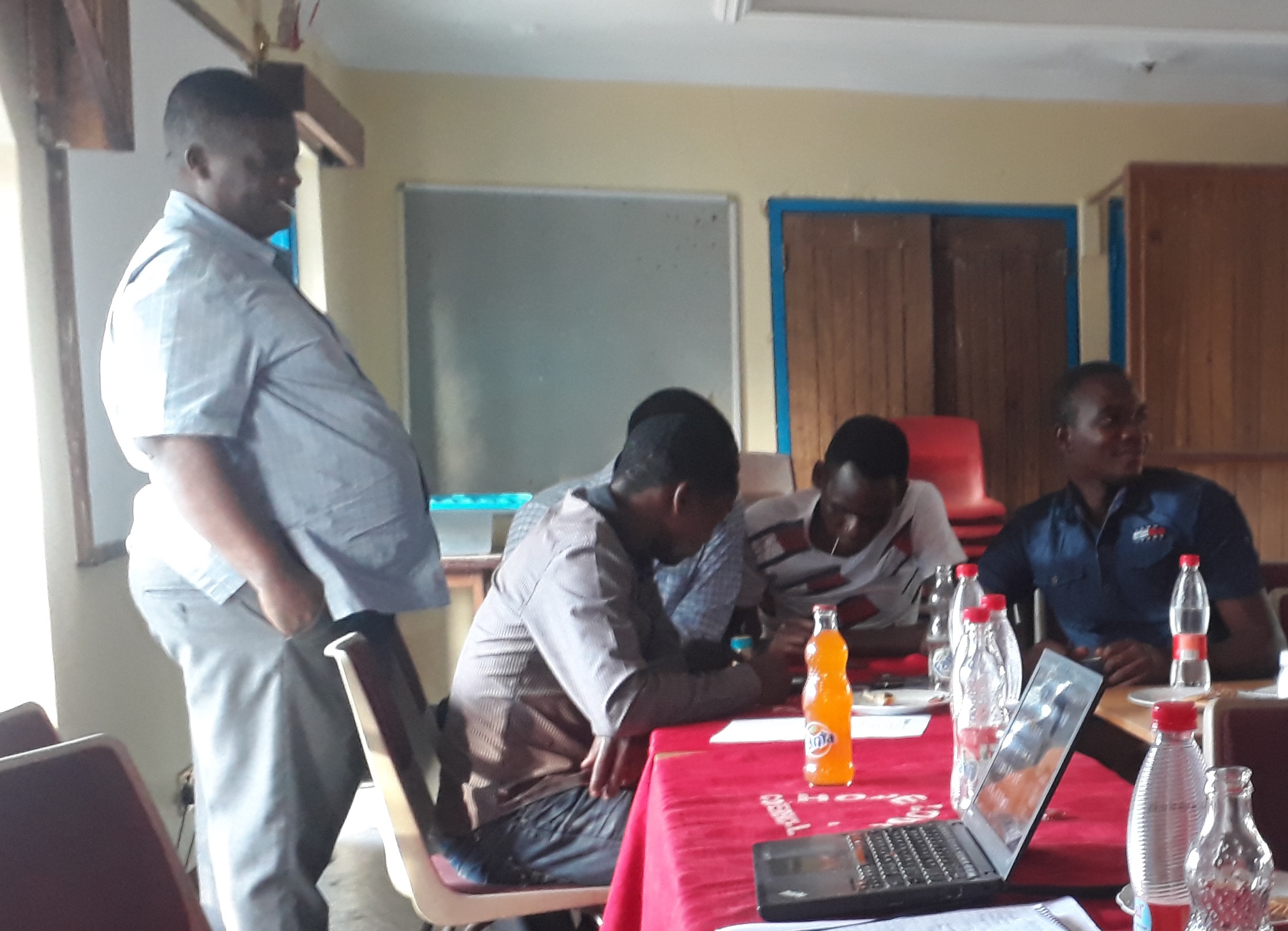
The follow-up initiative, documented in a peer-reviewed study published in Malaria Journal, extended the use of eMIS beyond the initial four pilot sites and leveraged tablet devices running OpenDataKit software to standardise and streamline data entry and reporting across multiple facilities. Using mobile phone-based technology mitigated infrastructure challenges such as inconsistent electricity and limited computer literacy. Tablets were equipped with long-lasting batteries and applications designed for offline use, allowing uninterrupted data collection even in the most remote areas. This allowed health workers to capture patient data at the point of care even in areas with limited infrastructure, ensuring that case management records were accurate, complete, and available in real-time.
The introduction of mobile-based electronic systems resulted in significant improvements in data quality. Completeness of malaria treatment records increased, and data accuracy reached 100% in the four participating facilities. Importantly, the digital system enabled timely aggregation of malaria case data, supporting faster and better informed decision-making at district and national levels.
A key element of the scale-up effort was local capacity building. Health workers were trained not only to use the mobile technology but also to understand its role in broader surveillance and public health outcomes. By empowering staff with both tools and knowledge, the project fostered a sense of ownership and long-term commitment to improved data quality.
“What we are seeing is that better data isn’t just about reporting—it’s about changing how care is delivered. When healthcare workers can access real-time data, they can respond to malaria outbreaks faster, allocate medicines more accurately, and improve adherence to treatment protocols.”
The scalability and success of this project illustrate how local innovations, when grounded in best practice and guided by frameworks like those offered by JBI, can transform national health systems. The integration of eMIS into rural Malawian clinics has demonstrated that with the right tools and training, facilities with minimal resources can play a pivotal role in malaria surveillance and control.
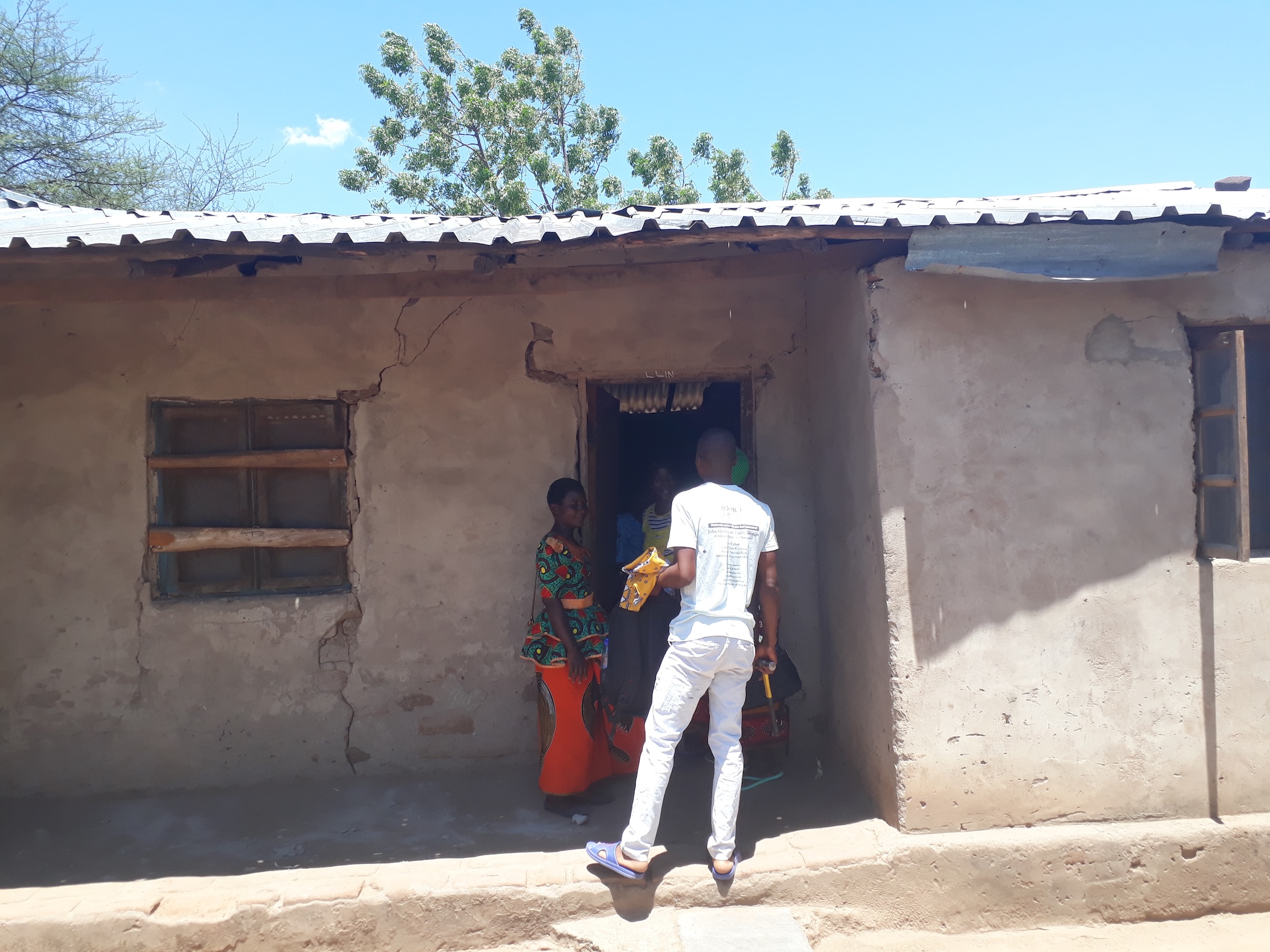
Looking ahead, Dr Kabaghe and his colleagues are advocating for the full adoption of eMIS across Malawi’s public health system. They are working closely with the Ministry of Health and development partners to align the initiative with national malaria control strategies and ensure long-term sustainability. Lessons from the implementation are being shared with other countries facing similar challenges, reinforcing Malawi’s role as a regional leader in evidence-based digital health innovation.
“This is more than a technology story. It’s about how evidence, local leadership, and collaboration can come together to solve problems and save lives.”
Conclusion
From pilot to practice, this initiative exemplifies how evidence implementation can generate meaningful, scalable change. It highlights the role of high-quality data in malaria elimination strategies and is a model for how digital health innovations can be used to bridge gaps in care, especially in rural and underserved settings.
Key takeaways
- The pilot of of eMIS used structured, evidence-based approaches to implementation that were easily replicated and expanded, demonstrating how the pilot could be expanded.
- eMIS and MIMP show how combining digital data systems with community-level interventions creates a scalable, complementary model for malaria control.
- Training and empowering frontline health workers, and fostering a sense of ownership of eMIS, supported the successful expansion and its alignment with Malawi’s national malaria control strategies.
References
Kabaghe, A. N., Sande, J., Phiri, M., Kazembe, P., Mathanga, D. P., & Van geertruyden, J. P. (2021). Improving quality of malaria treatment services: assessing and improving health worker practice and facility readiness for implementing malaria case management guidelines in Malawi. Malaria Journal, 20(1), 1–12.
RBM Partnership to End Malaria. (n.d.). Malawi. Severe Malaria Observatory.
World Health Organization. (2023). World malaria report 2023: Regional briefing kit.
Additional resources